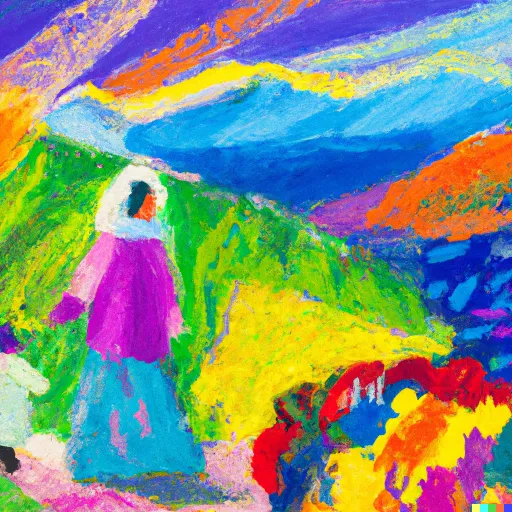Case Study: María

Breaking Barriers: María's Project for Inclusion and Social Change
Introduction:
María is a writer from Baeza, a city in Jaén, a province of Spain. She has created a project that aims to provide a safe space for people with disabilities, at risk of social exclusion or in need of support. Her project focuses on social networks, especially Wattpad, where she publishes stories and works that allow people to feel integrated and find characters that reflect their reality.
Motivation:
María’s motivation for starting this project comes from her own experience. When she was 14 or 15 years old, she was diagnosed with a borderline intelligence, and was told that she would not be able to achieve great goals due to her disability. This diagnosis pushed María to prove to herself and to others that she was capable of achieving great things, and that she could not be defined by her disability.
Support Received:
Although María faced some doubts and scepticism from her family and friends at the beginning of her project, she has received support as they have seen the positive impact her work has had on others. María has also received positive feedback from readers across Latin America and Spain, who have felt identified with her stories.
Objectives:
María’s project aims to provide a safe space for people with disabilities, at risk of social exclusion or in need of support. She wants to create a platform where people can feel seen, heard, and included, and where they can find stories and characters that reflect their reality. María believes that representation is crucial, and that through her project, she can help change people’s perceptions and attitudes towards disability.
Barriers:
María has faced several barriers while working on her project. One of the biggest challenges has been the lack of support from NGOs or the government. María has had to rely solely on her own resources, and this has limited the reach and impact of her project. Another challenge has been the subjective nature of literature, and the difficulty of measuring the impact of her work. María has also faced doubts about achieving her goals and worries that her project may not reach as many people as she would like.
Lessons Learnt:
Through her project, María has learnt several valuable lessons. She has learnt the importance of perseverance and commitment, and the power of storytelling to create change. María has also learnt that change takes time, and that it requires the support of others. She has learnt that even small actions can have a big impact, and that every voice matters. Finally, María has learnt that there is still much work to be done in terms of disability representation and inclusion, and that she has an important role to play in this ongoing struggle.
Impact:
The impact of María’s project has been positive on the target community and the wider society. Her project has provided a safe space for people with disabilities and has helped change people’s perceptions and attitudes towards disability. The project has also allowed people to feel seen and heard and has provided a platform for representation and inclusion.
Conclusion:
María’s project for inclusion and social change highlights the emergence of a new entrepreneurship phenomenon known as digital social entrepreneurship. Digital social entrepreneurship refers to the use of digital technologies to address social and environmental challenges [1]. María’s use of the social network Wattpad to provide a safe space for people with disabilities and those at risk of social exclusion is a clear example of digital social entrepreneurship.
Digital social entrepreneurship has been found to be driven by factors such as experiences in social organizations, access to digital technologies, and personal characteristics such as empathy and social consciousness [2]. María’s motivation for starting her project, which arose from her own experience with disability and the desire to create a safe space for others facing similar challenges, aligns with these findings.
However, despite the potential impact of digital social entrepreneurship, entrepreneurs like María often face barriers such as a lack of support from NGOs or governments, and difficulty measuring the impact of their work [1]. These challenges have limited the reach and impact of María’s project, highlighting the need for greater support for digital social entrepreneurs.
In summary, María’s project is an inspiring example of digital social entrepreneurship that addresses social and environmental challenges. María’s project aligns with the United Nations’ Sustainable Development Goals (SDGs), particularly SDG 10, which focuses on reducing inequality. The project has faced barriers, but María has learnt valuable lessons and has made a positive impact on the target community and the wider society. Her work is a contribution to the field of digital social entrepreneurship and serves as an inspiration to others who want to make a difference in the world.
References:
[1] García-Gómez, C., & Hervas-Oliver, J. (2021). N-Helix and digital social entrepreneurship: an opportunity for stakeholders’ satisfaction in a post-Covid19 era. Journal of Technology Transfer, 1-18.
[2] Wang, X., Liu, S., & Guo, Y. (2020). Exploring the antecedents of intention towards digital social entrepreneurship: An integrated model. Journal of Social Entrepreneurship, 11(4), 502-521.
